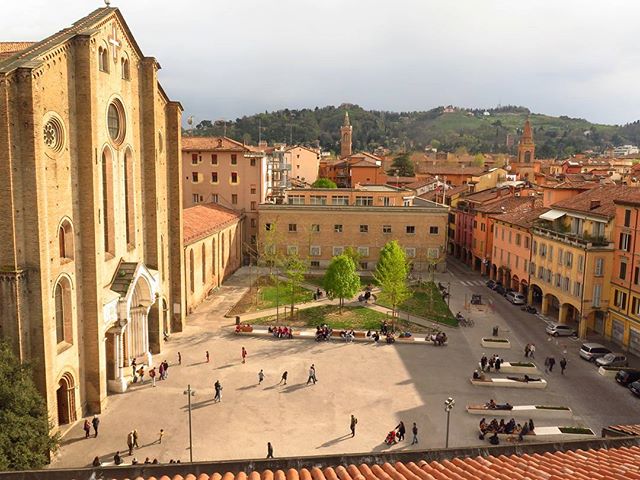Thessaloniki gets ready for its metro launch in November
The underground rapid transit lines have been under construction for almost two decades due to various project delays
 TheMayor.EU logo
TheMayor.EU logo Since the mid-1990s, it was one of the first Italian cities to introduce e-government services
Bologna, the seventh largest city in Italy and capital of the Emilia-Romagna region, is in top 3 smart cities in the country. Since the mid-1990s, it was one of the first Italian cities to introduce e-government services with creation of the Iperbole Civic Network. The network was established to deliver online services, multimedia content and information on municipal services and activities. In the next years, the city continued to digitize public services and collaborated in national and EU projects involving e-participation, e-health services, and public access points for disabled citizens and activation of free wireless hotspots.

Through a Memorandum of Understanding, the Municipality of Bologna, the University of Bologna and Aster (a consortium company dedicated to innovation and technology transfer), agreed to develop a Smart city platform. This strategic partnership identified key measures open to collaboration and innovation, such as sustainable mobility, social welfare projects, safe and attractive neighborhoods, intelligent network design and city center enhancements. The city also developed a Plan for Urban Innovation and in cooperation with the University of Bologna, established the Foundation for Urban Innovation.
In 2018 the Bologna City Council released the Metropolitan Strategic Plan. According to Virginio Merola, Mayor of Bologna it marks an important change of direction for the entire metropolitan area, offering for the first time a unified framework in which institutions and operators share long-term strategies and medium-term objectives and lines of action. The Strategic Plan communicates a vision of Bologna as an international center of excellence in research-based manufacturing, social welfare, culture, creativity and high quality of life. It is described in terms of 7 policies:
Source: Bologna Municipality

The underground rapid transit lines have been under construction for almost two decades due to various project delays

Now you can get your wine in Talence by paying directly in Bitcoin

That’s because the state has to spend money on updating the railway infrastructure rather than subsidizing the cost of the popular pass

Rethinking renewable energy sources for the urban landscape

The examples, compiled by Beyond Fossil Fuels, can inform and inspire communities and entrepreneurs that still feel trepidation at the prospect of energy transition

Now you can get your wine in Talence by paying directly in Bitcoin

The 10th European Conference on Sustainable Cities and Towns (ESCT) sets the stage for stronger cooperation between the EU, national and local level to fast track Europe's transition to climate neutrality.

At least, that’s the promise made by the mayor of Paris, Anne Hidalgo

The underground rapid transit lines have been under construction for almost two decades due to various project delays

At least, that’s the promise made by the mayor of Paris, Anne Hidalgo

Hostal de Pinós is located in the geographical centre of the autonomous region

Despite its church-y name, the district has long been known as the hangout spot for the artsy crowds

Urban dwellers across the EU are having a say in making their surroundings friendlier to people and the environment.

Forests in the EU can help green the European construction industry and bolster a continent-wide push for architectural improvements.

Apply by 10 November and do your part for the transformation of European public spaces

An interview with the Mayor of a Polish city that seeks to reinvent itself

An interview with the newly elected ICLEI President and Mayor of Malmö

A conversation with the Mayor of Lisbon about the spirit and dimensions of innovation present in the Portuguese capital














